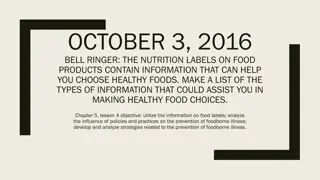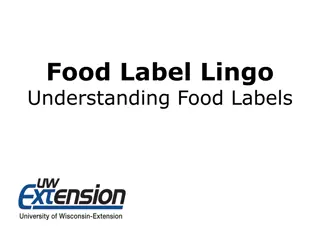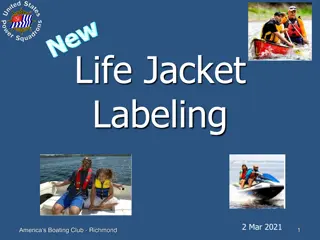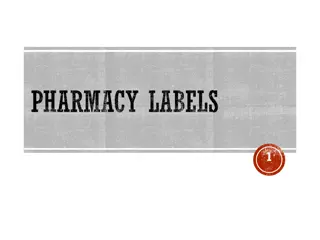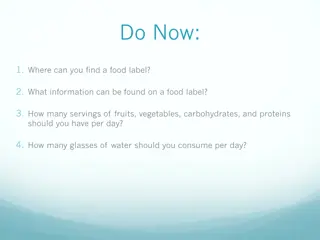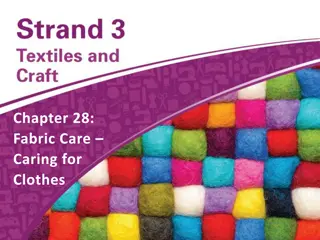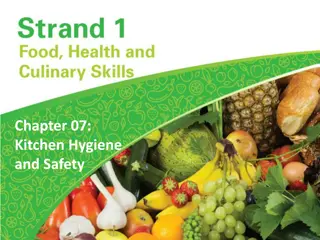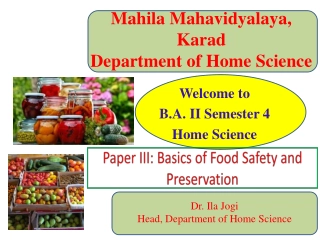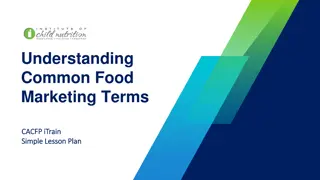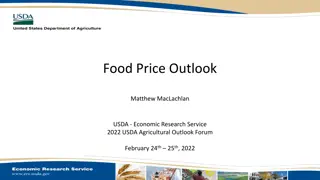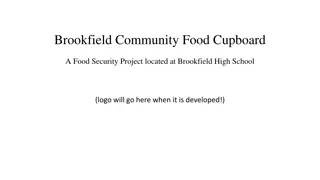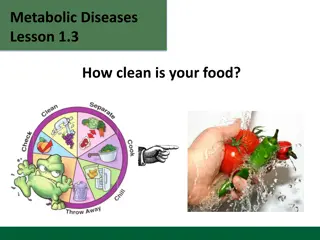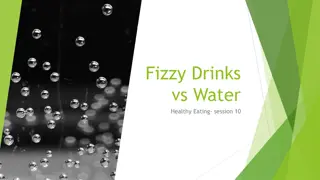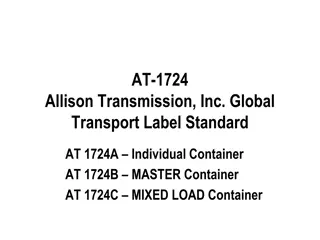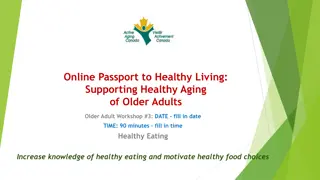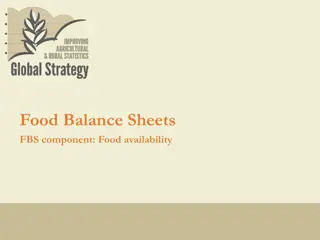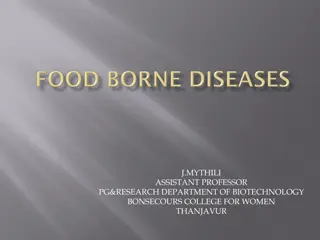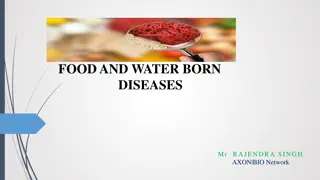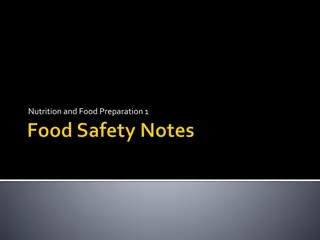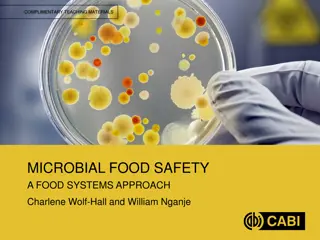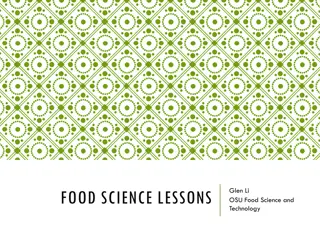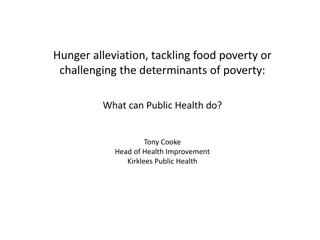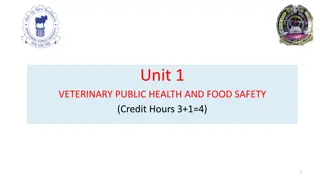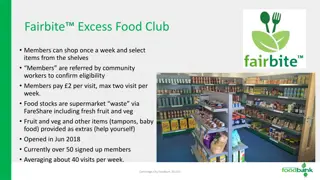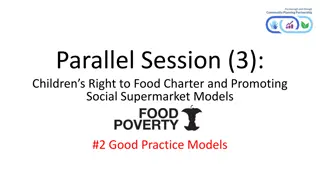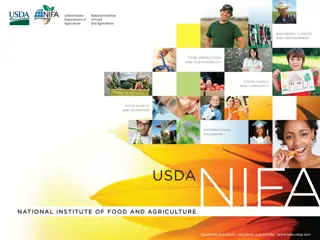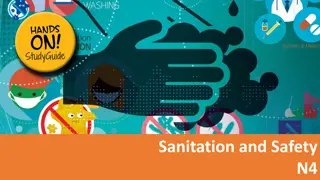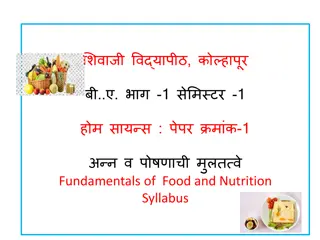Understanding Food Labels: A Comprehensive Guide
Learn about deciphering food labels, comparing products, identifying reliable logos, quality assurance labels, fair trade certifications, organic food labeling, and the pros and cons of organic products. Get insights on different label types, what they mean, and how they can help you make informed choices when shopping for food products.
Download Presentation

Please find below an Image/Link to download the presentation.
The content on the website is provided AS IS for your information and personal use only. It may not be sold, licensed, or shared on other websites without obtaining consent from the author. Download presentation by click this link. If you encounter any issues during the download, it is possible that the publisher has removed the file from their server.
E N D
Presentation Transcript
TODAY Thurs. April 20 Work on label assignment in class Assignment is not due today Next Week Tues. April 25 Turn in Label Activity-10 points-Due today! Gastro-Intestinal (GI) Tract Reminders Exam 1 Tues. May 2 See syllabus for all exam/assignment due dates
Deciphering Labels-part II The Language of Labels
Labeling Activity-Product Comparison Compare two products using labels provided Complete the handout Explain your choice to another group. Do they agree with you? Due next class. One paper/team, typed, last name/first name
Quality Assurance Labels-Supplements USP and Consumer Lab (CL) Look for on supplements Assures accurate ingredient list Does NOT insure safety or effectiveness
Certified Fair Trade (FT) Typical products: coffee, tea, chocolate, cotton Pro: Safer working conditions, more fair wages paid; No child labor, community support provided, no GMO Environmentalsafeguards required Con: Often pricey, high Carbon-footprint, luxury items FT items may be, but are NOT necessarily, organic or healthy, and usually not locally grown/produced.
Labeling of Organic Foods 100% organic = all ingredients are organically produced Organic = 95% ingredients organic Made w/ organic ingredients >70% USDA seal NOT allowed
Organic Pros/Cons-you decide! Better for environment better for us! Usually more expensive. Not subsidized, smaller scale production, demand> supply Costs for worker, animal, soil/air/water protections Land fallow (resting) on rotation to rebuild, so no crop! Organic is NOT necessarily CFT, fresh or local!
Organic:(A few) USDA Qualifying rules Plants no synthetic fertilizers, pest or herbicides x 3yrs. no sewer sludge used; cannot be irradiated no use of genetically modified (GMO) seeds Animals no factory farming conditions no antibiotics/hormones (prevent disease/ promote growth) no irradiation fed 100% organically grown feed
Genetically Modified Organism (GMO) DNA of live organisms/cells, modified in a lab ~60%+ of US processed food has GMO content GMO label NOT required on US foods : ( Pros v. cons GMO unfolding over time Want to avoid it? Buy 100% organic or look for NON- GMO certification Check out Trader Joe s products Whole Foods to be 100% Non-GMO
CFT, Organic, Non-GMO Too pricey? Think before you buy! Better-Increase intake of conventionally produced veggies/fruits if organic, CFT, non- GMO are unavailable/un-affordable. Do what you CAN! New label rules will help you make better choices.
Labels are Changing- July 26, 2018 Calorie listing and serving size more obvious Added sugar is separate entry %DV revised and Footnote eliminated Vitamin Mineral listing changed Add Vit D, K+ Remove Vit A & C
Standard portion for foods/beverages enlarged. cup 2/3 cup 8 oz. 12 or 20 oz. A good or bad change? More realistic Normalizes excess
Til then...... Best!!!!! Better Good Consume more food products that make few/any claims! Use ingredient list and NutritionFacts panel! Ignore the rest! Better yet, consume more foods requiring NO label such as vegetables and fruit!


